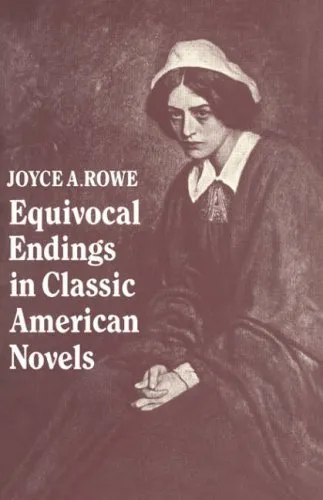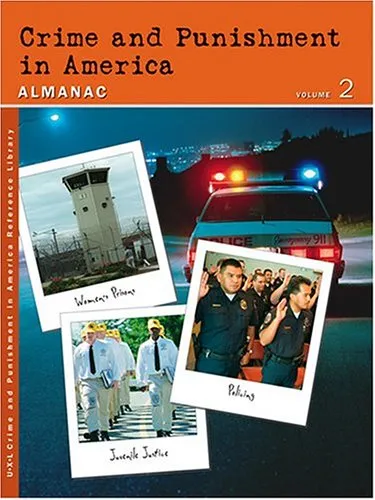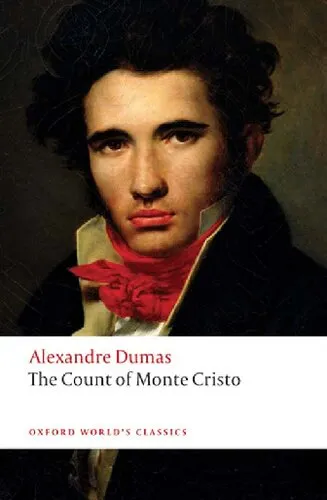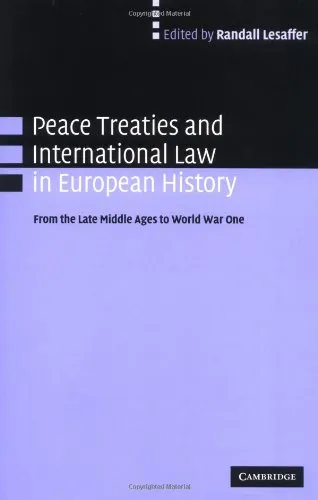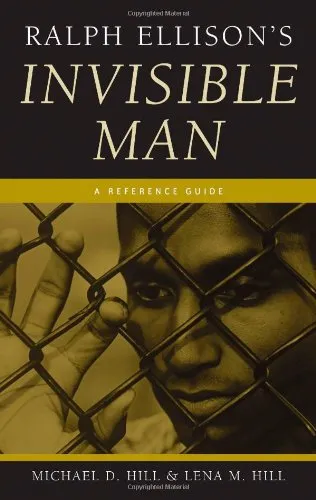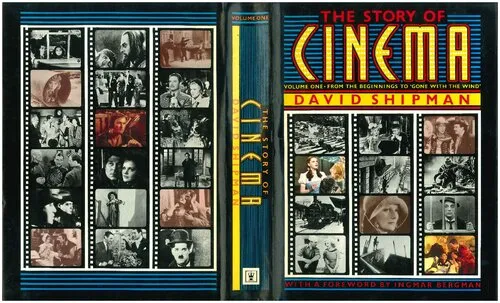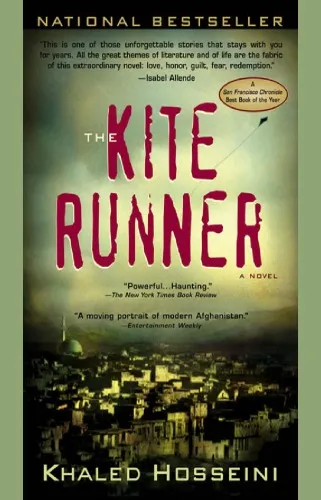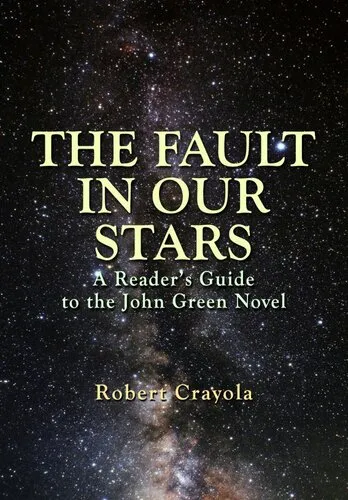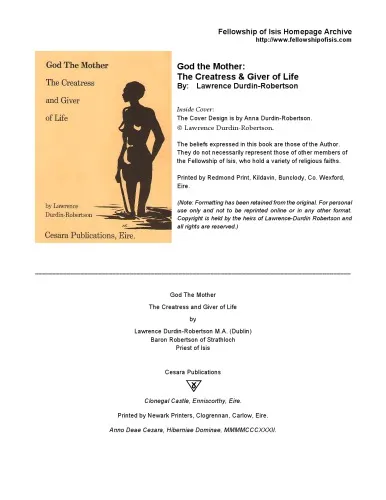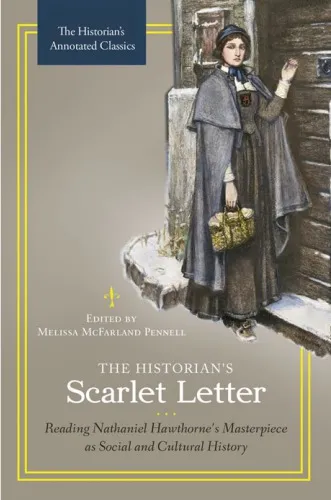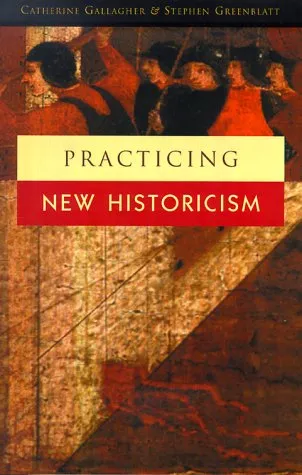Equivocal Endings in Classic American Novels: The Scarlet Letter; Adventures of Huckleberry Finn; The Ambassadors; The Great Gatsby
4.0
بر اساس نظر کاربران

شما میتونید سوالاتتون در باره کتاب رو از هوش مصنوعیش بعد از ورود بپرسید
هر دانلود یا پرسش از هوش مصنوعی 2 امتیاز لازم دارد، برای بدست آوردن امتیاز رایگان، به صفحه ی راهنمای امتیازات سر بزنید و یک سری کار ارزشمند انجام بدینکتاب های مرتبط:
معرفی کتاب 'Equivocal Endings in Classic American Novels'
این کتاب به تحلیل و بررسی پایانهای مبهم و نامشخص در چهار رمان کلاسیک آمریکایی یعنی 'The Scarlet Letter' نوشته ناتانیل هاثورن، 'Adventures of Huckleberry Finn' اثر مارک تواین، 'The Ambassadors' از هنری جیمز و 'The Great Gatsby' نوشته اف. اسکات فیتزجرالد میپردازد.
خلاصهای دقیق از کتاب
این کتاب به بررسی این مسئله میپردازد که چگونه پایانهای مبهم در شاهکارهای ادبیات کلاسیک آمریکا به خوانندگان اجازه میدهد تا تفسیرهای گوناگونی از این آثار داشته باشند. این تکنیک ادبی به گونهای به کار گرفته شده که ضمن حفظ داستان و پیام نویسنده، تجربهای متفاوت و شخصی برای هر خواننده ایجاد کند.
در 'The Scarlet Letter'، هاثورن با پایانی که سرنوشت نهایی شخصیتها را مبهم باقی میگذارد، به موضوعاتی نظیر گناه، توبه و جامعه پرداخته است. 'Adventures of Huckleberry Finn' تواین، نه تنها ماجراجویی و اخلاقیات، بلکه جایگاه اجتماعی شخصیتها را نیز بررسی میکند و پایان اثر به سوالاتی درباره آزادی و هویت فرهنگی پاسخ نمیدهد.
هنری جیمز در 'The Ambassadors' با استفاده از کنایهها و جزییات پیچیده، پایان داستان را باز میگذارد تا خواننده خود نتیجهگیری را انجام دهد. در 'The Great Gatsby'، فیتزجرالد به صورتی هوشمندانه معضل آرزوهای نابود شده و رویای آمریکایی را بیان میکند که تا پایان باز باقی میماند.
نکات کلیدی
- تحلیل و تفسیر ادبیات با توجه به پایانهای مبهم و متفاوت
- تاثیر پایانهای باز بر درک و تجربه خواننده
- تاثیر تکنیکهای ادبی بر روایت داستان
نقلقولهای معروف از کتاب
"پایان مبهم به نویسنده این قدرت را میدهد که داستان را در خاطر خواننده ماندگار کند، در حالی که افکار و احساسات او را به چالش میکشد."
"هر روایت، دفتری باز است برای آنکه خواننده دیدگاهها و دانستههای خود را به آن پیوند زند."
اهمیت این کتاب
این کتاب از اهمیت ادبی و آموزشی بالایی برخوردار است زیرا نشان میدهد که نویسندگان چگونه با استفاده از پایانهای مبهم، داستانهای خود را برای نسلهای متمادی زنده نگه میدارند. این اثر به ما میآموزد که چگونه میتوان یک پایان غیرقطعی را نه تنها به عنوان پایان داستان، که به عنوان نقطه آغازی برای گفتگوهای جدید ادبی و فرهنگی در نظر بگیریم.
با مطالعه این کتاب، علاقهمندان به ادبیات کلاسیک، ابزارهایی جدید برای تحلیل و تفسیر آثار عظیم ادبی پیدا میکنند؛ همچنین این اثر برای پژوهشگران ادبیات فرصتی فراهم میآورد تا به بررسی عمیقتر و پیچیدگیهای بیشتر در داستانهای کلاسیک بپردازند.
Introduction
Welcome to 'Equivocal Endings in Classic American Novels: The Scarlet Letter; Adventures of Huckleberry Finn; The Ambassadors; The Great Gatsby', a literary exploration of some of the most thought-provoking and enigmatic conclusions in American literature. This book delves into the profound complexities and subtle nuances that define the endings of these cherished novels. It provides readers with insights into the authors' intentions and the cultural reverberations of these narratives' conclusions.
Detailed Summary
This book examines the distinctive and often ambiguous endings of four hallmark American novels. Each chapter is dedicated to a single work, dissecting the narrative structure and thematic layers that contribute to its concluding equivocations:
- The Scarlet Letter: Nathaniel Hawthorne's masterpiece concludes with an air of mystery around the fate of its characters and the moral implications of their actions.
- Adventures of Huckleberry Finn: Mark Twain's quintessential American tale leaves readers pondering the future of Huck and Jim, and the unresolved nature of societal norms at the time.
- The Ambassadors: Henry James delivers an ending that is both conclusive and indefinite, prompting reflection on personal transformation and cultural perception.
- The Great Gatsby: F. Scott Fitzgerald's iconic novel ends with a meditative perspective on the American Dream, entwining hope and melancholy.
Through careful analysis, each chapter invites readers to engage with these narratives beyond their plots to discover how equivocal endings enhance the thematic depth and enduring impact of these works.
Key Takeaways
- The power of ambiguity in literature as a tool for engaging the reader's interpretation and emotional investment.
- How the cultural and historical context of each novel informs its ambiguous ending.
- The role of the reader in deriving meaning from open-ended narratives, transforming personal perspectives and understanding.
Famous Quotes
The Scarlet Letter
"A pure hand needs no glove to cover it."
Adventures of Huckleberry Finn
"All right, then, I'll go to hell."
The Ambassadors
"Live all you can; it's a mistake not to."
The Great Gatsby
"So we beat on, boats against the current, borne back ceaselessly into the past."
Why This Book Matters
The study of equivocal endings in classic American novels is essential for several reasons. Firstly, it engages with the tradition of American literature's fascination with exploring new frontiers, both physically and mentally. These open-ended conclusions mirror the complexity of the American experience and the ongoing quest for identity and meaning. Moreover, by understanding these narratives' ambiguities, readers gain deeper insights into the societal and cultural questions that have shaped, and continue to influence, American life.
Further, this book serves as a guide for readers and scholars who wish to delve deeper into American literary themes and narrative techniques. It enhances the appreciation of these novels' artistry and the skillful way their authors manipulate language and form to evoke contemplation and discussion.
In conclusion, 'Equivocal Endings in Classic American Novels' highlights the enduring legacy and relevance of these seminal works in the canon of American literature. It underscores the importance of ambiguity in storytelling, inviting readers to look beyond the surface and engage in a richer, more fulfilling reading experience.
دانلود رایگان مستقیم
شما میتونید سوالاتتون در باره کتاب رو از هوش مصنوعیش بعد از ورود بپرسید
دسترسی به کتابها از طریق پلتفرمهای قانونی و کتابخانههای عمومی نه تنها از حقوق نویسندگان و ناشران حمایت میکند، بلکه به پایداری فرهنگ کتابخوانی نیز کمک میرساند. پیش از دانلود، لحظهای به بررسی این گزینهها فکر کنید.
این کتاب رو در پلتفرم های دیگه ببینید
WorldCat به شما کمک میکنه تا کتاب ها رو در کتابخانه های سراسر دنیا پیدا کنید
امتیازها، نظرات تخصصی و صحبت ها درباره کتاب را در Goodreads ببینید
کتابهای کمیاب یا دست دوم را در AbeBooks پیدا کنید و بخرید
1358
بازدید4.0
امتیاز0
نظر98%
رضایتنظرات:
4.0
بر اساس 0 نظر کاربران
Questions & Answers
Ask questions about this book or help others by answering
No questions yet. Be the first to ask!
